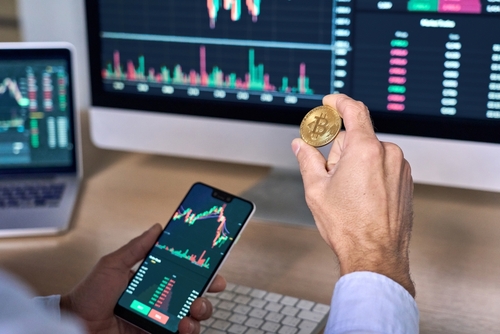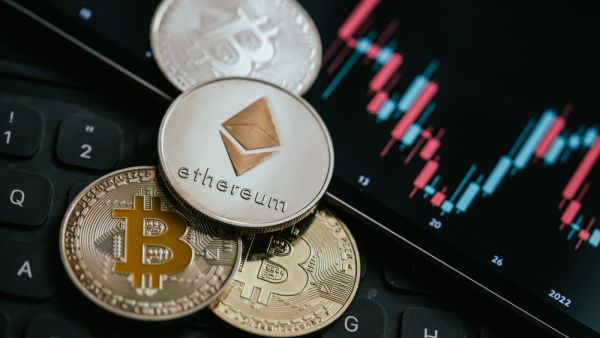ALBAWABA- recently, financial markets have seen a widespread shift towards digital assets, with crypto trading gaining greater popularity. However, the trading of traditional Forex (foreign exchange) remains a dominant force in the world of trading. Whether you consider venturing into the world of trading or not, it's essential to understand the differences between these two investing options. In this article, we'll explore the difference between Forex and crypto trading to help you make informed trading decisions.

Source: Shutterstock
Forex Trading: The Old Guard
The global market for trading fiat currencies including the US dollar (USD), Euro (EUR), Japanese yen (JPY), and British pound (GBP) is known as the forex market. With an average daily trading volume over $6 trillion, it is one of the biggest and most liquid financial markets in the world.
1. Market Maturity: Since forex trading has been around since the 1970s, the market is established and mature. Conservative traders who value predictability are drawn to its stability.
2. Leverage: The substantial leverage offered by forex trading enables traders to manage sizable positions with comparatively little cash. However, if not handled appropriately, this could potentially result in significant losses.
3. Market Hours: Because the forex market is a worldwide one, it is open every day of the week, 24 hours a day. More strategic planning is possible because to this ongoing trading.
4. Regulation: The majority of nations have strict laws governing forex trading, which offers some degree of investor security. For people who place a high priority on security, this may comfort them.
Crypto Trading: The New Frontier
The purchasing and selling of digital assets like Bitcoin (BTC), Ethereum (ETH), and others is a part of crypto trading. When compared to the Forex market, this one has only been around for a decade.
1. Volatility: The price volatility of cryptocurrencies is well known. This has more risks but also has a huge potential for reward. Prices for cryptocurrencies can change dramatically in a matter of minutes or hours.
2. Market Hours: Unlike forex markets, cryptocurrency markets are open continuously, giving traders access to opportunities at all times. This necessitates regular monitoring, which may be both a benefit and a difficulty.
3. Lack of Regulation: Compared to the Forex market, the cryptocurrency market is less regulated, making it more open to fraud and manipulation. Investors should use care and do extensive study.
4. Diversification: Trading cryptocurrencies offers exposure to new asset classes and provides for diversification outside of conventional financial assets. Diversification can, however, potentially raise portfolio risk.
Choosing the Right Trading Option
Take your financial objectives, risk tolerance, and trading preferences into account when choosing between forex and cryptocurrency trading.
Select Forex If:
1. You favor a dependable and established market.
2. You value minimal volatility and strong liquidity.
3. You desire the safety that comes with strict control.
4. You have practical knowledge of conventional financial markets.
Select Crypto If:
1. You don't mind greater risk and volatility.
2. You want your investing portfolio to be more diverse.
3. You have a technological bent and are open to new ideas.
4. You have access to a 24/7 market watch or are considering investing in cryptocurrencies over the long term.
Crypto trading, like forex, presents its own prospects and difficulties. Your risk tolerance, investment objectives, and trading style will ultimately determine which option you choose. Some investors might even decide to experiment in both markets, making use of each one's advantages to create a balanced portfolio. Regardless of your choice, make sure your trading activities are effective and well-informed by conducting extensive study and thinking about consulting with financial experts.







